Little Green Interview: Sweet Pain
Little Green is your everyday Sydney girl. Like a large proportion of 19-year old’s, she has taken the path of tertiary study, but with a twist. The twist we’re talking about? Allowing her ambitions as a musician and her ideas as a creator to come into fruition. She does this strikingly through her debut single ‘Sweet Pain’. The track explores the experience of letting defining life events go and appreciating them for what they were. Little Green speaks about her musical prose and intense passion to make music that inspires and motivates others.
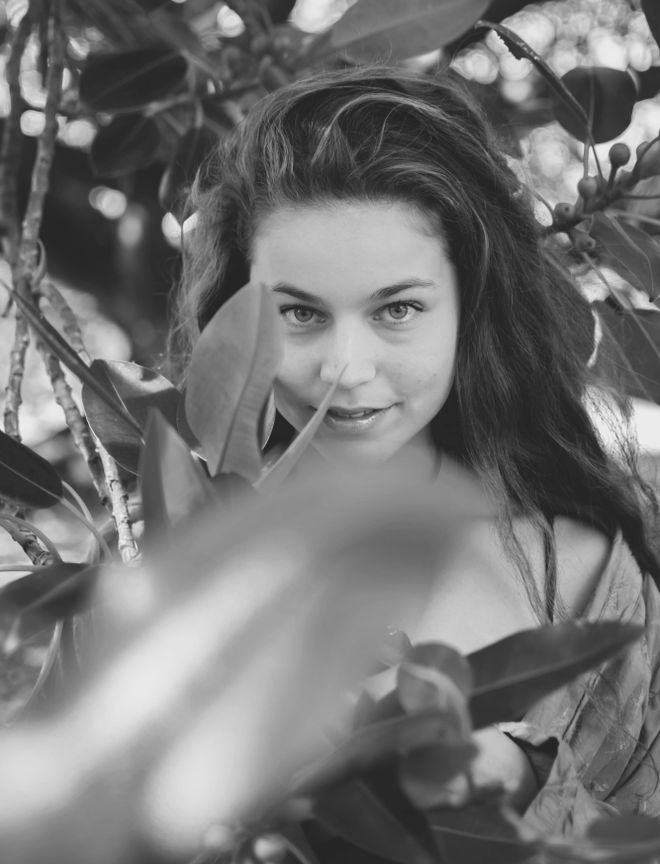
A1on1: How was the lead in period? How was it waiting for ‘Sweet Pain’ to come out?
LG: It’s been a real learning journey because I’ve never done this before. There’s been moments of stress, moments of boredom. I just want it to come out so something happens. It’s mostly just excitement. I’m just excited to have something that exists because I don’t really exist as an artist yet. It’s been good, and I’ve met heaps of people. It’s kind of weird; as soon as you put a vibe out, all this stuff happens and it’s like the universe conspires to help you. I’ve met these cool people who have wanted to help me on the journey.
How have they helped you stay sane in the moments of boredom?
People in the industry will offer advice and let me know that I’m doing it right. A manager or someone who works at APRA and [even] some random who saw me busking on the street designed my EP artwork, so I didn’t even have to think about it. Stuff like that is lucky, like ‘thank you!’
How has it been to build connections with new people like that through music?
It’s the most beautiful thing. It’s why I do it. I think art inspires art which is cool. [It’s cool] hen my music inspires someone else to create something. That person who designed my artwork, he said it inspired him to pick up the guitar again. There’s a few stories like that where people see me play and they’re like, ‘thank you so much! It inspired me to pick up music again’, or ‘it inspired me to create’. I think that the coolest thing about connecting is hearing other people’s stories. I just love people’s stories. When I open up, it allows other people to open up. It makes them feel like they can. I think that’s really cool. I like being that person.
‘Sweet Pain’ reflects the emotional complexities Little Green juggled with as she gave up her passion in swimming. The underlying motif of the song can take on varied meaning for people and change as they develop.
For you, has it taken on new meanings as you’ve grown up?
Yeah definitely. It started out exaggerating something that wasn’t really that bad. Later on, it definitely helped me. When I travelled overseas by myself there were a lot of challenges. I would get kind of anxious. Losing loved ones. Definitely as I grow up and experience new levels of pain, it takes on new meaning. It will keep taking on new meanings as well. It’s not even in the world yet. I’ve heard songs take on their own life. For me, it kind of represents a time in my life more than one thing. I almost wrote it for other people, imagining what other people feel as well and wanting to help. It means lots of things and I’m glad you related. That’s cool.
It’s pretty positive in its core message. Have you always had that attitude? Has it ever wavered in the face of bigger challenges?
I don’t think [it has ever wavered]. I’ve always been a super positive person. I hope I’m not one of those annoying positive people. I can be sad too. I don’t like to share bad vibes. I don’t really like to write songs that don’t end up well. When I write a song, it’s almost like I’m writing advice to myself. There’s always something good. There’s always something good in something bad, and always something bad in something good. I think the time I did swimming was really good for developing a good mindset. I think I’ve trained myself to be positive.
Would you say losing something is a good thing in hindsight?
Yeah, definitely. I think so. I was reading a book and it said something about ‘the memory of an experience is just as important and good as the experience itself’. I was like, ‘that’s so true! That’s so relatable’. I really enjoy remembering that time, but I would not want to go back.
What have your influences been in art and culture besides just musical influences?
I do read a lot. I read a lot of spiritual life books, like ‘The Four Agreements’ and ‘The Alchemist’. At the moment, I’m reading a very mind opening book called ‘Homodeus’, which is about the future of humans. Also, poetry. I got really into this poet called Christopher Poindexter. He had a book called ‘Naked Humans’. Books that explore the human condition I really love and get inspiration from. I also grew up in a pretty artsy town in the Blue Mountains. That was inspiring, seeing people be themselves and just come out so explicitly. Our family was always doing stuff like painting and writing little stories.
I did read some of your poems! They’re really cool!
Did you start ‘Sweet Pain’ as a poem or did you have a melody in your head?
I think most of my songs start as a feeling, like a vibe. It was so long ago, but I think it might have been sort of simultaneous. The finger picking guitar thing for the verses probably was my sadness coming out. Maybe I wrote a melody and lyrics at the same time. I remember playing it to my sister after writing it, but I don’t remember actually writing it.
Did you refine the ideas as the song aged or go into the studio with it already concrete?
I’d been playing it live quite a lot before I actually recorded it. Structure and flutes and everything, that was all solid. It was just extra little things like vocal adlibs and harmonies and actual production. Over time, the songs become more solids and you start to see them the same every single time. I got into the studio knowing how I sing it every time.
Little Green took a daring approach to her first EP. She temporarily relocated to Madrid, teaming up with Spanish producer Diego Seijas to hone her craft.
Was that one recorded in Spain with Diego?
Yes, it was. That was his favourite one too.
How did he help guide you? Had you ever delved in production work before?
I’ve into little home studios before and recorded myself, but this is another experience. That poem I wrote, about recording ‘Raw’, everything had to be so perfect. We would just do everything over and over and over again until we got it right. If the emotion wasn’t there we’d take a break and I hated that. I would just want to keep going. Diego would say stuff like ‘you’re not going to get it in this session, just take a breather’.
He taught me a lot about perfectionism and the way to make something sound good is to get it right, rather than just hope for the best, first go, which is what I usually do. I’m like ‘oh yeah! It’s good! It’s raw and authentic’. It was also a really cool time to get to know each other well. The whole experience was magical. I was living in a Spanish house, eating French food and having this whole crazy experience recording my songs.
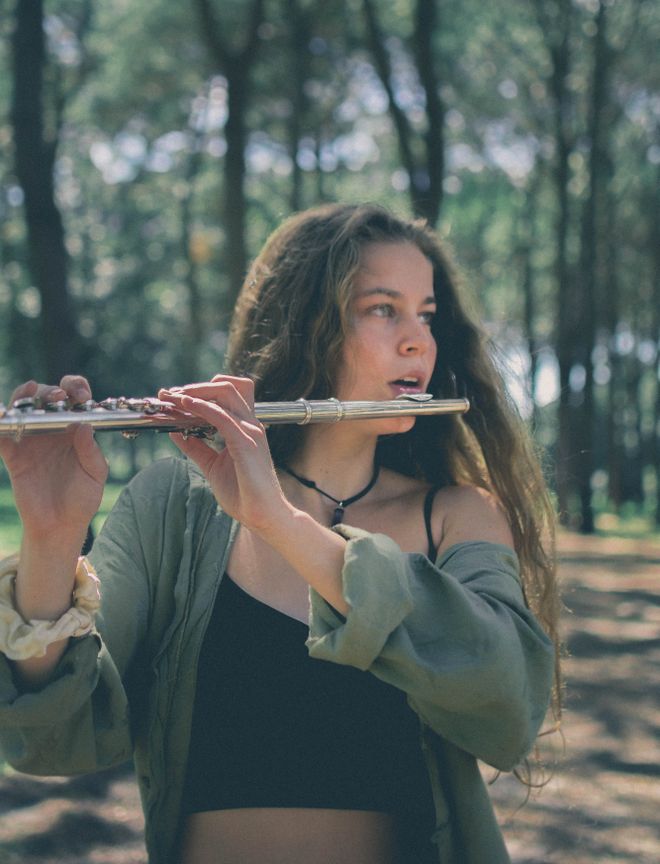
How did travelling help you get in a space where your creativity peaked?
I think when I’m travelling, all my commitments go away, so it’s so much easier to be creative. Being in a different space also helps. You’re not used to it and everything is new. I think also while I was away a lot of my emotions were right at the surface. I was feeling so many things so strongly. Missing home, or so excited for the next day. That actually helped the recording of the song, because I could access the emotion so much easier.
Do you think being alone played a role in that?
Yeah. It was very introspective. I wrote 70 poems while I was away. I wrote a full book. I was thinking I want to get it published, but it’s a lot harder than I thought. It’s nice to have that just as a memory. I wrote every day, sometimes twice a day. I think I wrote about experiences more than I actually experienced things. Next time I travel, maybe I’ll get the balance a bit better. It was definitely a creative time.
Do you keep all the ideas or have a filtering process?
I keep them in mind. If someone sends me beats, I’ll look through my old journals and see if anything fits with it. Most of the time, I’ve realised it doesn’t really fit and it’s better to come up with something on the spot to really fit the music. For my own future projects, I’ll probably go back and use some of the ideas at least, if not, the words.
Why was ‘Sweet Pain’ the best song for debut?
I guess it’s my best song. It gets the best reaction. People seem to relate to that one really well. It has the best structure. Also, ‘Sweet Pain’, if you put the words together, it makes Spain, so that was really cool. All the songs on the EP I totally could have written whilst I was overseas, but ‘Sweet Pain’ definitely is a representation of the experience and that time in my life as an artist and as a person. It’s cool to start with that one that sums everything up.
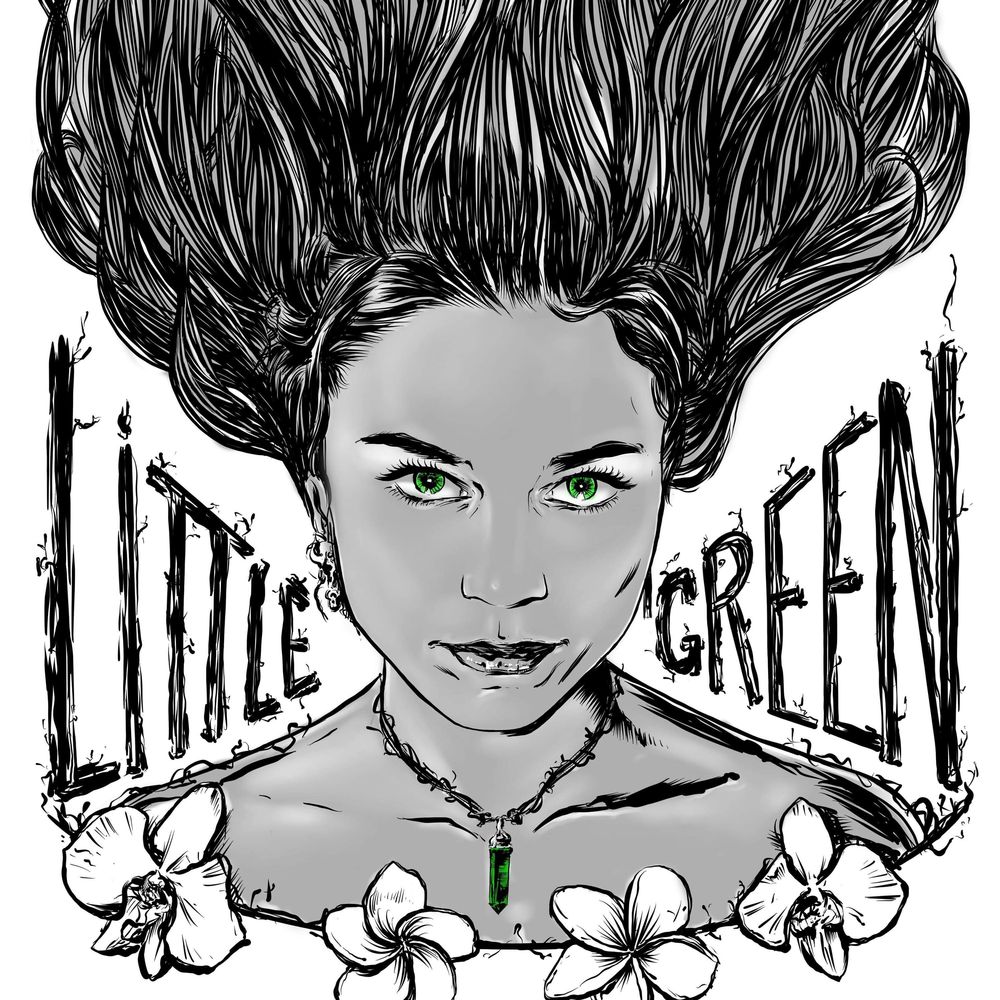
Did you record every instrument in the studio or just vocal?
We spent a day recording guitar. I played all the guitar bits. For the next days we did vocal takes. A song a day pretty much. I sung the lead vocals, the harmonies and everything. I did flute for two songs. I brought my flute and guitar over there. I ended up going to the studio later because we couldn’t find a saxophone on time. On the very last day before I came back to Australia we recorded some saxophone.
After I did all my stuff, Diego the producer put programmed drums and synths and stuff. My dad recorded bass at his house and then sent it back over. It was very back and forth, and I didn’t think that through when I was like ‘let’s go record an EP in Spain!’ I didn’t realise how annoying it would be talking ideas on opposite sides of the world. That was the process, and it was cool.
Was it easier to experiment in the journey with the lyrics, or instruments, or vocals? What was the most natural?
I reckon with my voice. That was something Diego helped bring out of me. There was this one moment where I was like, ‘I didn’t know I could do that,’ and he said, ‘that’s my job!’ Not so much in ‘Sweet Pain’ because it was very much [complete], but in ‘Raw’, which features more of the vocals, there were lots of layers and harmonies and that was a lot of fun to make sounds with my voice and experiment and see what came out. I reckon the voice was definitely very experimental. The instruments was more like, let’s figure out what works and play it like 100 times until it’s perfect.
Currently, the singer, songwriter and multi-instrumentalist is pursuing song-writing through her studies at JMC.
How has starting a degree in song-writing helped you be more open to experimenting?
At the moment, we haven’t done much song-writing. The first year is more contemporary music, but I think it’ll be good to think about song-writing in ways that I haven’t thought about it before and hone my craft. I can always be better. I [can] meet people and collaborate. That’s the biggest thing. I want to collaborate with so many creative people, whether they’re song-writers or not. With song-writing, it’ll be interesting to see other people’s process and I think that will help. Sometimes it’s hard to not make every song sound the same. I think learning about people’s process will help with that.
What do you think it’s taught you already then?
I’ve actually learnt so much already. It’s only been about 3 or 4 weeks. We had to sing a blues song. I chose a Nina Simone song called ‘My Man’s Gone Now’. I’ve never really dived into a song that deeply before. Analysing how she sings, the way she plays and her whole story. It’s developed my artistry by researching and copying other people. I’ve been getting some good singing lessons.
We had this one session where she told me to speak the words first and then sing then and it came out so easily and it was crazy. [With] little tips and tricks like that, I’ve learnt a lot. Being in an environment where everyone is on the same page, creating stuff is really helping. Tips in the industry has been really good, which is what I love about JMC. It’s not just about learning about music. It’s learning how to be a musician in the industry.
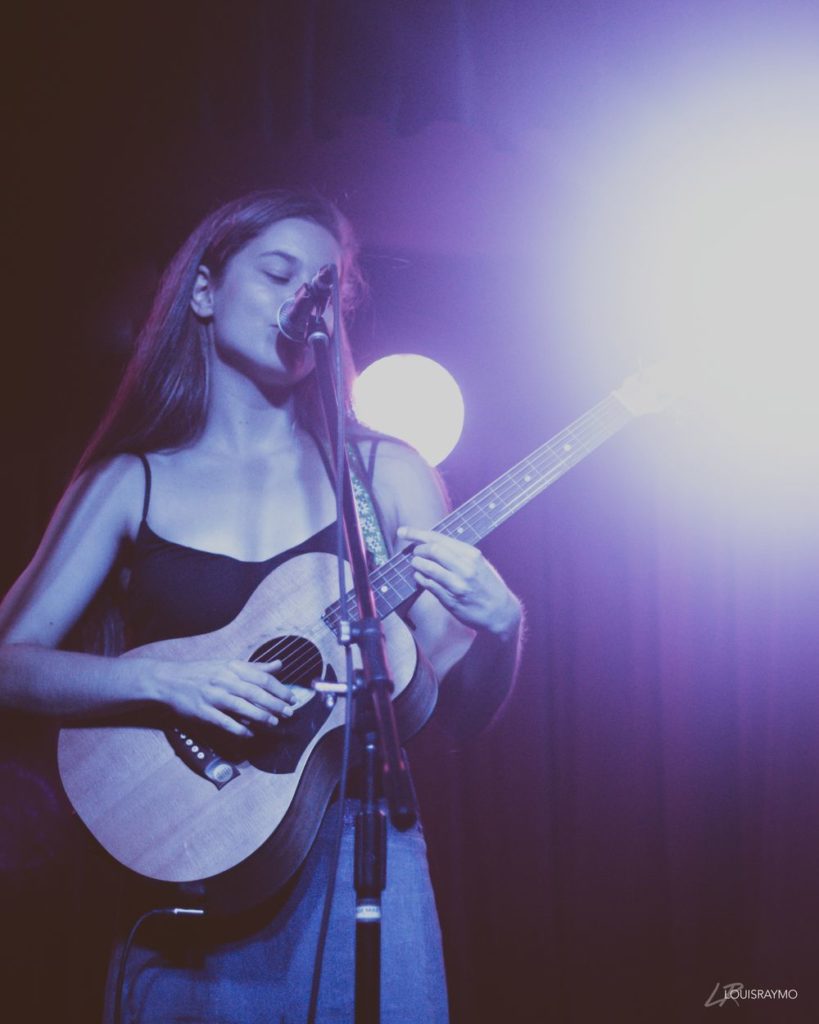
Aside from creating music, Little Green has immersed herself in all avenues of music from a tutor to a radio station volunteer.
Do you think that’s why you do so many musical activities? Because of the rush you get?
It’s good to just be everywhere and open to everything and attached to nothing. So many good things are possible. I love to throw myself into whatever environment I’m in. Even in school, I was doing all the extracurricular activities and involved in everything. That’s life. You can get as much as you want out of it. I like to meet lots of different people and shake it off a bit and keep myself entertained.
What’s the biggest thing you’ve taken from people around you and their experiences?
The first thing that comes to mind is that everyone lives in their own reality. You never know what someone’s experience is and what they’re thinking. I will never know what it feels like to be someone else. How weird is that? I only know what I’m feeling. One of the biggest things is never judge a person, ever. Even if you know their story. There’s always a reason why someone is the way thy are. I try not to judge anyone because I feel like there’s a reason behind whatever’s going on. People are the same, but they’re different. That’s a big question. I just like people’s stories. They’re interesting.
Then what is the thing you want people to take away from you?
My whole message as an artist is to share a childlike appreciation of the world. If that’s the only thing people get from my music, I’ll be happy. I think the way a kid sees the world is so beautiful and I don’t know why we lose that. But, we do and it’s stupid. I want to carry it on into my adult life and share it with everyone. I always like writing songs with a message. Something that uplifts me that might hopefully uplift other people. That’s the main things, the childlike thing and uplift and inspire.
Do you think everyone sees a childlike perspective differently?
Yeah maybe, because everyone has their own childhood experiences. My childhood was really good and magical. I grew up in the Blue Mountains and got to play outside, but I guess other people’s childhoods could be really traumatic. Untainted childlike appreciation. Just when you don’t question anything. No awareness really. That can be something different for everyone. That’s also something I would like my music to do. I want it to mean whatever the listener wants it to mean. Whatever message they are looking for, if they get that then that’s cool, even if I did not intend that at all.
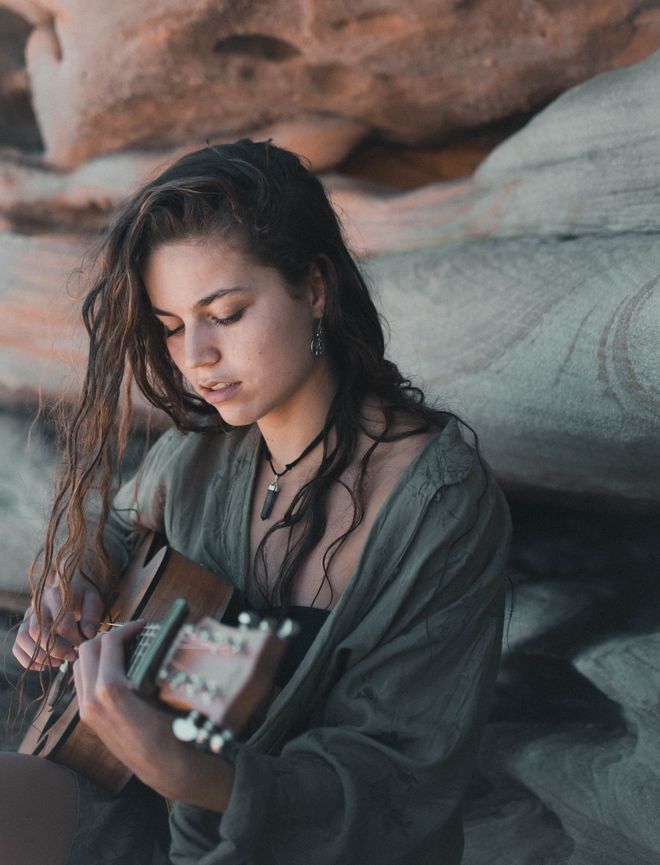
Will the EP be an extension of childhood memories and a clear view on the world?
Yeah, I think so. The songs on the EP are pretty diverse in style, but they do all have the underlying message of the inner child. In one song I ask, ‘what is the opposite of a war? I think we should have one’. That’s something a kid would ask. Just simple messages that can relate to kids but are also transient. When I play music and write music, I’m also accessing my inner child, so that inevitably shows in the EP.
Do you think you construct that beyond lyrics?
Yeah. I like the music to reflect the lyrics as well. There’s one that’s super bouncy. Another one that’s really weird timing to reflect the uncertainty that I was feeling. It definitely comes in the music as well.
Why do you think people enjoy consuming that?
It wouldn’t really make sense if it didn’t. It would be confusing to listen to. It also lets you fully get out what you need to get out and be immersed in the song if everything sticks together. It’s the same with books and movies. They use techniques to reflect whatever the thing is about.
Lastly, how do you hope to grow as ‘Little Green’? How does the growth you’ve already experienced set you up in future?
Growth is super important to me. I’ve definitely evolved a lot since I started. I was so clueless. I still am pretty clueless! I want to keep a lot of things, but I want to expand on exploring heaps of different musical styles. I want to play to heaps of people and keep growing there. Being open to all different types of opportunities and seeing where life takes me.
I have a plan, but I’m not attached to it. I’m very open to growing in ways I never knew I could. Having new experiences, meeting new people. I like looking back and writing letters to myself and seeing how I’ve evolved. I’m hoping I’ll look back at this time and appreciate what I did and what I’m doing as well as who I was and who I am. If I grow in any way, it’s good. It’s a win. It’s impossible not to grow.
FOLLOW LITTLE GREEN